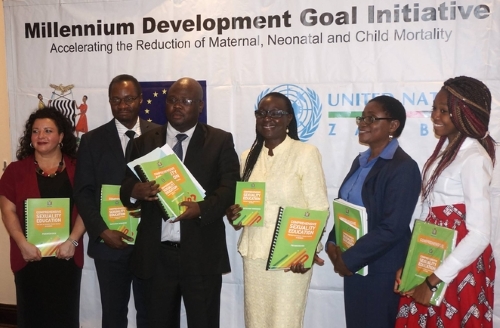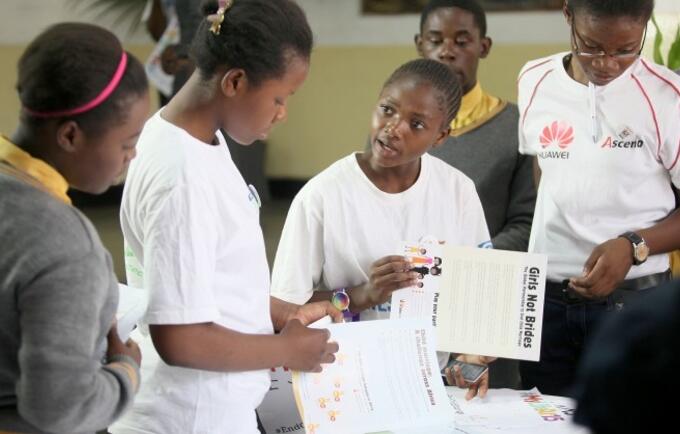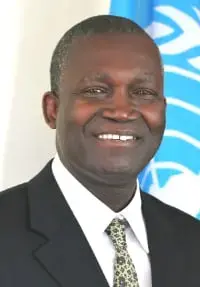At the age of fifteen, Anna wanted to become a famous singer. The youngest of seven girls, all of her sisters were married off at an early age, most of them because they were pregnant, and she worried that it might happen to her.
"My parents died when I was very young,” she said. “We brought ourselves up and most of my sisters got married young because of teenage pregnancy. Our relatives thought the only solution was to marry them off."
In Zambia, this story is all too common. Girls like Anna have limited access to sexual and reproductive health information and services, which contributes to the current high rates of teenage pregnancy, at 29 per cent, and high HIV prevalence rates.
This month saw an important step being taken to improve knowledge of and empower young people in their sexual and reproductive health and rights.
Training trainers in CSE for out-of-school youth

The Ministry of Youth, Sport and Child Development with support from UNFPA, the United Nations Population Fund in Zambia, launched a twelve-day training programme on the Comprehensive Sexuality Education (CSE) curriculum for out-of-school youth in Zambia.
The training is aimed at developing the capacity of sexuality education trainers to train other educators in CSE for out-of-school young people in Zambia, using the curriculum. The curriculum has been adapted to the country context to ensure comprehensive, accurate and quality CSE is provided to young people who are not in school.
In Zambia, many young people are currently not in school and consequently, they miss out on in-school CSE. They are at great risk of failing to access rights-based information and services, and this in turn has a significant impact on their transition to adulthood. They are often excluded from social and health interventions that are delivered by the formal education system, nor do they have access to accurate information about their sexual and reproductive health.
This lack of information may lead to risky sexual behaviour, which in turn puts them at risk of sexually transmitted infections (including HIV), teenage pregnancy and child marriage.
High rates of child marriage, GBV
Zambia has one of the highest rates of child marriage in the world, with an estimated 31 per cent of girls aged 20-24 years married by the age of 18. Almost 30 per cent of girls aged 15-19 years have experienced physical or sexual violence from a husband or partner.
Contraceptive use among young people is low, including condom use (8 per cent of girls aged 15-19 years are infected with HIV, compared to 5 per cent of boys).
Evidence shows the impact on school retention and completion: 58 per cent of girls drop out of school by grade 9 and 44 per cent by grade 12, mainly due to teenage pregnancy and child marriage.
Reaching at-risk youth with CSE
Young people out of school are harder to reach with CSE and this requires greater effort. The out-of-school CSE framework will complement the in-school CSE curriculum and by so doing, support a holistic approach to ensuring consistency of rights-based and gender-sensitive information provided to all young people.
As UNFPA Country Representative Dr. Mary Otieno noted at the launch of the training of CSE trainers, the right to education and information is grounded in human rights, “a right that can only be fulfilled if government and its partners provide the enabling policy environment and socio-opportunities required for adolescents and young people to develop into healthy, educated and productive adults.”
Muma Kennedy Mukupa, representing the Ministry of Youth, Sport and Child Development, agreed: “The out-of-school CSE curriculum will help fulfil and enhance the sexual and reproductive health and rights needs of young people. It will provide a unique opportunity and entry point for addressing current and emerging sexual and reproductive health issues and improving the health and quality of life for out-of-school young people.”
Zambia today has a record 4.8 million young people aged 15-35 years – 37 per cent of the population, the largest population of young people in its history. With targeted investments such as this, they represent an enormous opportunity to transform the country’s future – and to ensure every young person’s potential is fulfilled.
By Precious Zandonda




